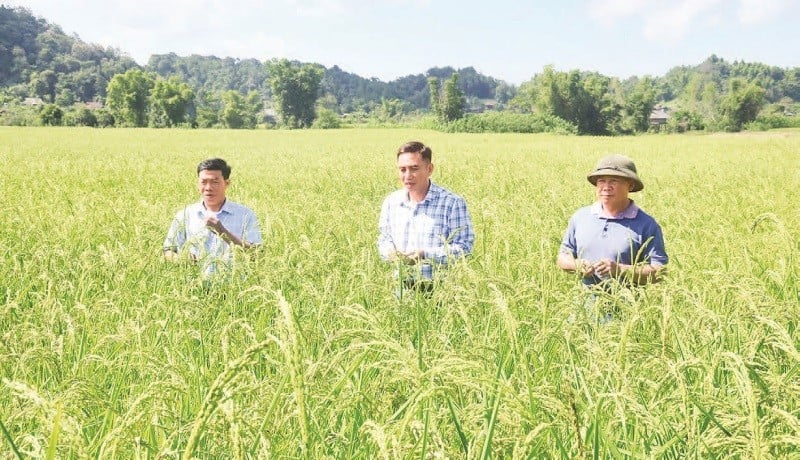
Te Do Dien Bien is a specialty seasonal rice variety commonly grown on terraced fields, upland fields and along streams in highland communes such as Tuan Giao, Muong Cha, Tua Chua, Muong Nhe...
This is a rice variety with a long growing period, strong tillering, strong plants, large flowers, red-brown rice grains, little chalkiness, rich in vitamins and minerals B1, B2, B6, Fe, Mg, Ca... Not only has high commodity value, Dien Bien red rice is also a native rice variety that can adapt well to many natural conditions because of its ability to grow well on many types of soil and sub-climates, good drought resistance, and resistance to many major pests and diseases such as blast, leaf blight, and brown planthoppers.
However, due to long-term cultivation without selection, restoration, and lack of investment in research on cultivation techniques, over time, productivity and quality have decreased significantly. Farmers in many communes continue to cultivate but cannot maintain the purity, causing the specialty value of the rice variety to gradually fade away.
Faced with that situation, in 2020, Dien Bien decided to use funding to support the implementation of the project "Research on exploitation and development of genetic resources of Dien Bien red rice varieties", with the participation of experts and scientists. The successful restoration results have contributed to improving the quality of the variety, meeting the local demand for high-quality rice production.
Rice yield increased by 10-15%, the rate of rice grains meeting commodity standards was higher, the delicious, rich flavor was favored by consumers. The successful restoration of Dien Bien red rice variety contributed to the preservation of valuable genetic resources, opening up a sustainable development direction for Dien Bien specialty agriculture .
Continuing this success, in 2023, the Department of Science and Technology of Dien Bien will preside over and implement the project "Restoring varieties, building growing area codes, linking production with processing and consumption of Muong Phang-Dien Bien sticky rice products".
Mr. Trinh Doan Hoang, Head of the Economic Department of Muong Phang Commune, said: In 2025, the Department of Science and Technology will coordinate with the People's Committee of Muong Phang Commune to deploy on a pilot area of 2,500m2, with the goal of surveying, collecting, and evaluating the genetic resources of Muong Phang sticky rice; restoring and producing rice seeds at all levels; perfecting the technical process of seed production for rice varieties; at the same time, building a production linkage model associated with processing and consumption of sticky rice products; recognizing and implementing the process of recognizing this rice variety and establishing, managing, and monitoring the growing area code.
The successful implementation of the project is the first step for the Department of Science and Technology to aim at building a production linkage model associated with processing and consumption of Muong Phang sticky rice products, with a scale of 100-150 hectares in 2 years; at the same time, forming a consumption linkage chain of 300-400 tons of commercial sticky rice meeting VietGAP standards.
“This is quite important content to restore precious genetic resources, aiming to make Muong Phang sticky rice a key product, with a growing area code, traceable origin and building a sustainable brand in the market,” said Deputy Director of the Department Vu Xuan Linh.
From the success of preserving and restoring native plant varieties such as sticky rice and red rice, the province continues to expand research, selection and protection of other specialty plant varieties. Up to now, Dien Bien has been specially recognized by the Department of Crop Production (Ministry of Agriculture and Environment) for 11 local plant varieties, including: Queen pineapple, Cayenne Pu Lau pineapple, purple cardamom, Shan Tuyet Tua Chua tea, Tua Chua taro, Phi Nhu taro, Na Son red peanuts, Tia Dinh green squash, Muong Nhe red peanuts, LT16 cassava and Dien Bien Mong cucumber (also known as Dien Bien cat cucumber).
Among the recognized and protected plant varieties, there are currently many that have affirmed their position in the market and become the main agricultural products of each region. A typical example is Shan Tuyet Tua Chua tea with its strong flavor, sweet aftertaste, tea buds covered with a characteristic layer of white snow, recognized as an OCOP product and exported to many demanding markets.
Or the Queen pineapple and Cayenne Pu Lau pineapple products have high yield, rich sweetness, characteristic aroma, and are purchased by many businesses for deep processing. The effectiveness of developing specialty plant varieties has brought about a clear change to the local agricultural economy. Many commodity production areas have been formed, creating jobs and increasing income for people.
The products contribute to diversifying the crop structure, promoting tourism development, and building local brands. Some enterprises and cooperatives have linked up with farmers in production, processing, and consumption, helping to stabilize output and increase product value, creating a foundation for sustainable development of specialty agriculture.
Ms. Chu Thi Thanh Xuan, Deputy Director of the Department of Agriculture and Environment of Dien Bien, said: The conservation and development of indigenous plant varieties has scientific significance and profound cultural and social values. Because each plant variety is associated with the life, farming practices, festivals, folk knowledge and a land of ethnic minorities. Therefore, preserving indigenous plant varieties means preserving the cultural identity of the highlands, creating a foundation for the development of eco-tourism and agricultural tourism.
Source: https://nhandan.vn/phat-huy-gia-tri-cay-nong-nghiep-ban-dia-post923196.html


![[Photo] Unique architecture of the deepest metro station in France](https://vphoto.vietnam.vn/thumb/1200x675/vietnam/resource/IMAGE/2025/11/14/1763107592365_ga-sau-nhat-nuoc-phap-duy-1-6403-jpg.webp)


![[Photo] Unique art of painting Tuong masks](https://vphoto.vietnam.vn/thumb/1200x675/vietnam/resource/IMAGE/2025/11/14/1763094089301_ndo_br_1-jpg.webp)


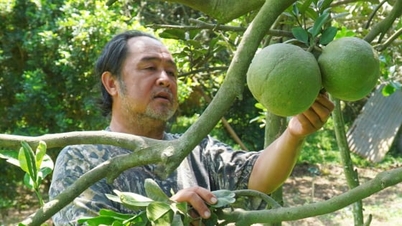

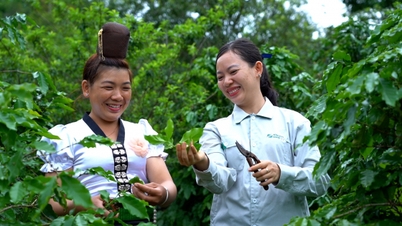
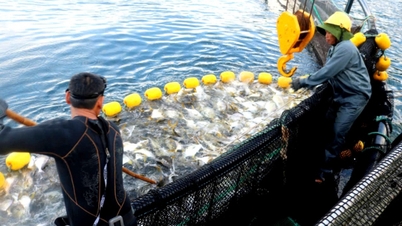
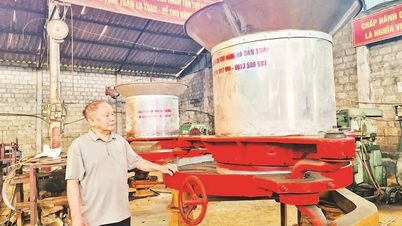
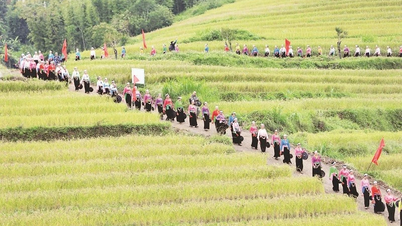
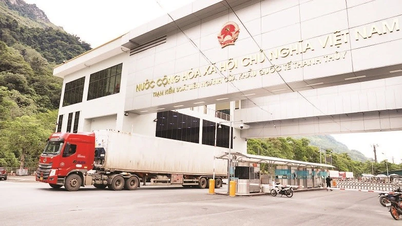




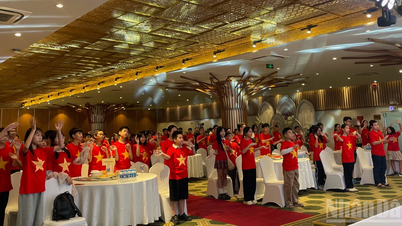
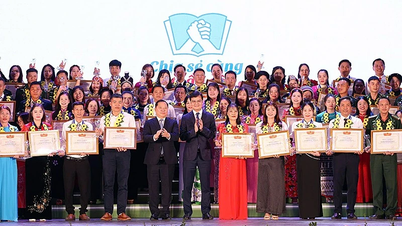
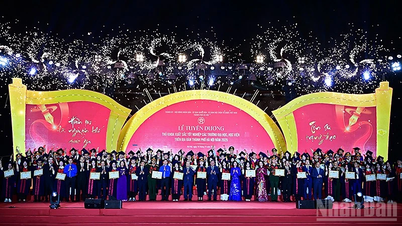



![[Photo] Special class in Tra Linh](https://vphoto.vietnam.vn/thumb/1200x675/vietnam/resource/IMAGE/2025/11/14/1763078485441_ndo_br_lop-hoc-7-jpg.webp)












































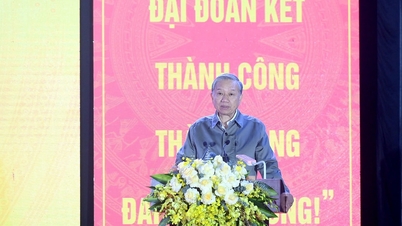









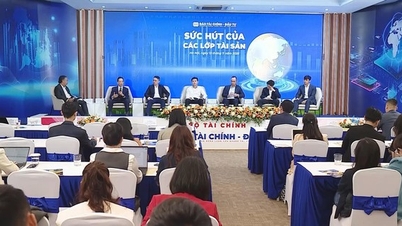
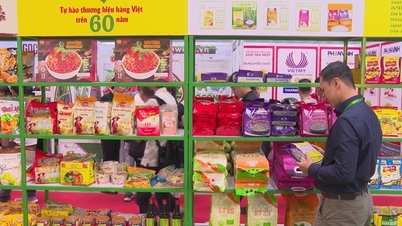


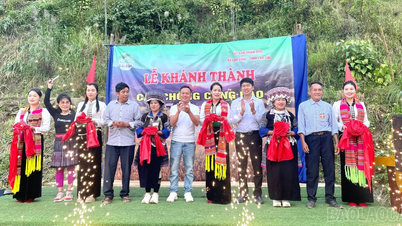

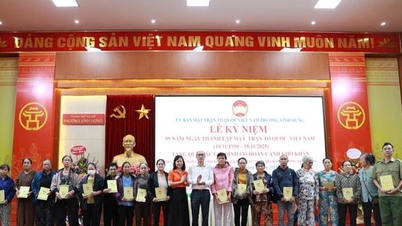













Comment (0)